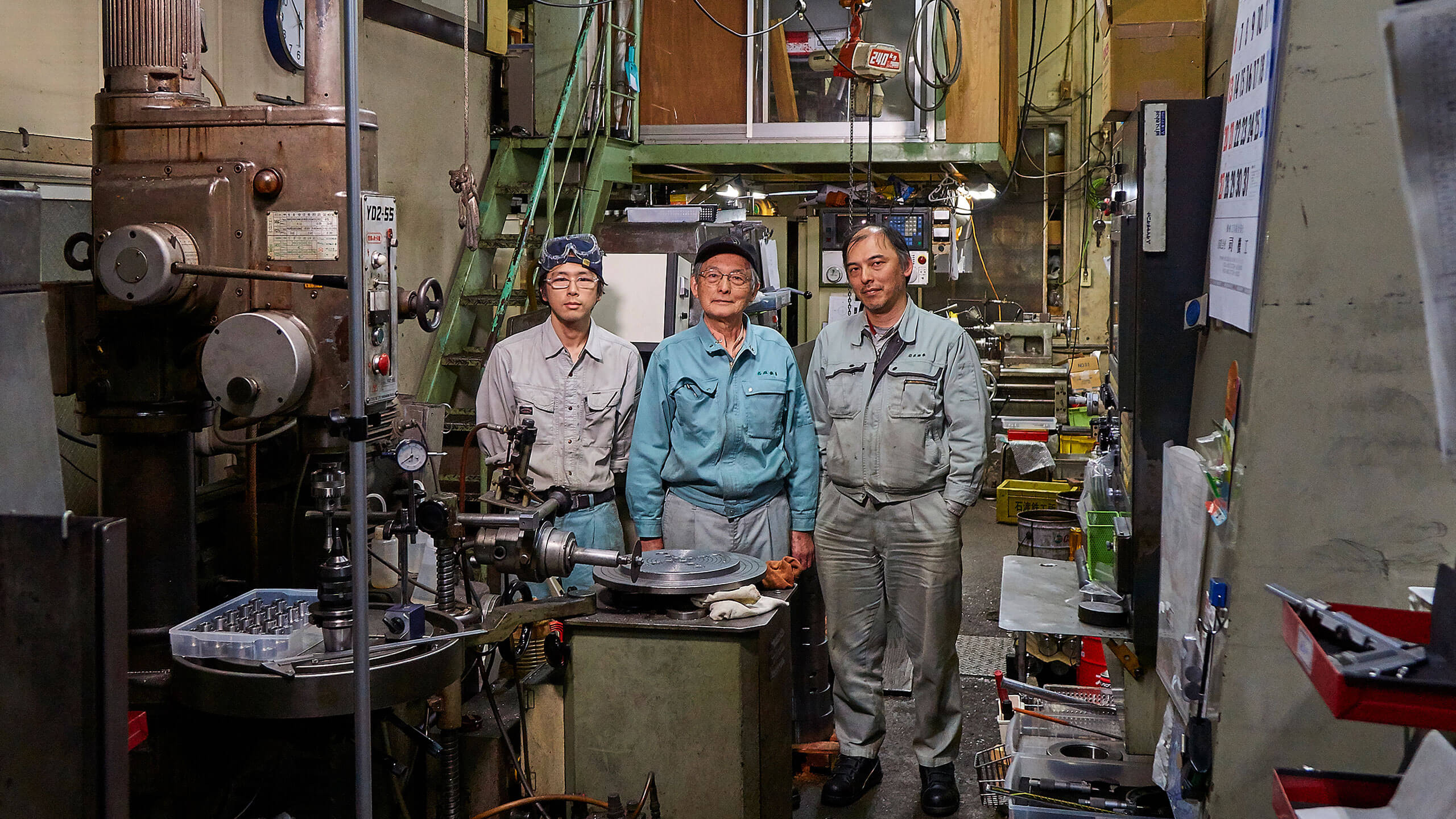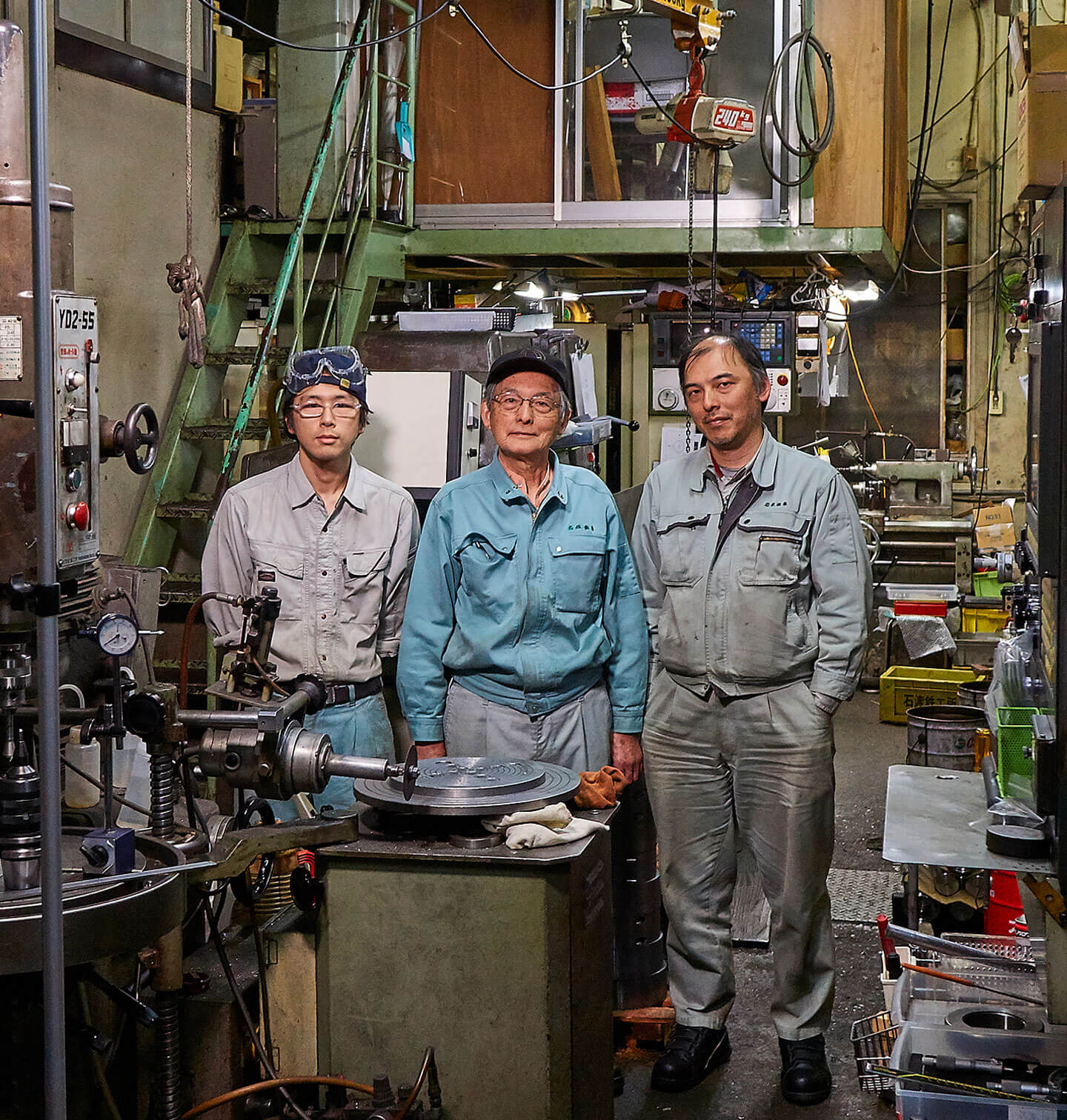INDUSTRIAL JP
idstr.jp open shareOctober 23, 2016
AT-6
iwasa haguruma
interview
The important thing is what we can do in the production process using our hands and head.
// iwasa haguruma / interview
Ota Ward, Tokyo. Iwasa Haguruma Co. is located right by Anamori-Inari Station. The operation is run by a small three-person team, headed by one of the best master mechanics Ota Ward has ever seen. We had the pleasure to speak to the executive director of this small town factory that inspired the track by Inner Science.
iwasa haguruma
ID-6
iwasa haguruma
inner science
As for products that are familiar to us,
it’s also used for the shafts of racing cars.
Could you tell us what you manufacture? As we can tell from the factory name, you must manufacture “Haguruma” (gears)?
That’s right. We used to only cut cogs, but now we’re also responsible for the manufacturing stage before that. We first take cylindrical steel and sharpen it to a form that is ready to have the cogs made. We use a machine called a lathe to sharpen the material to this stage, then cut the cogs in. Back in the day, we didn’t have access to this machine which is why our operation focused on cog-cutting. Now we can prepare this previous step too from within our factory.
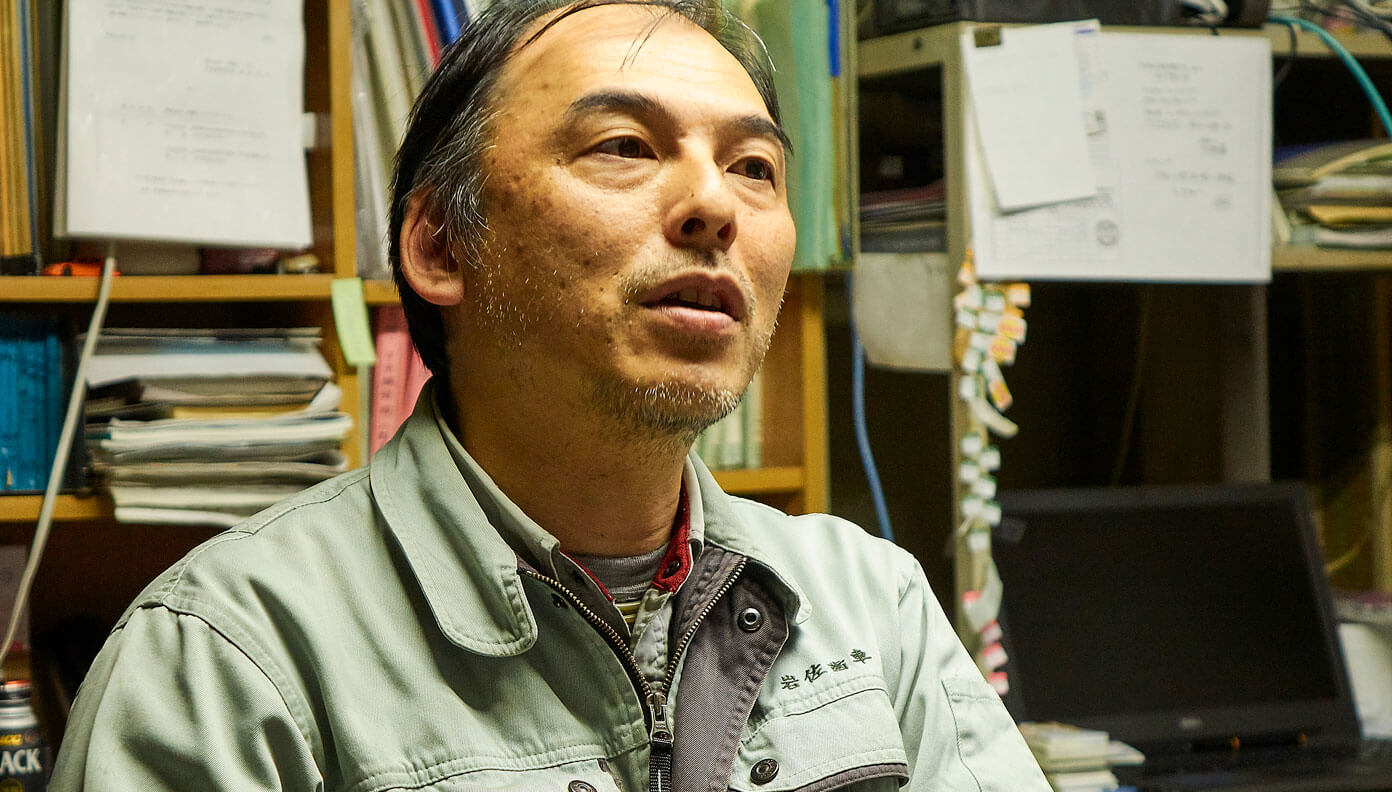
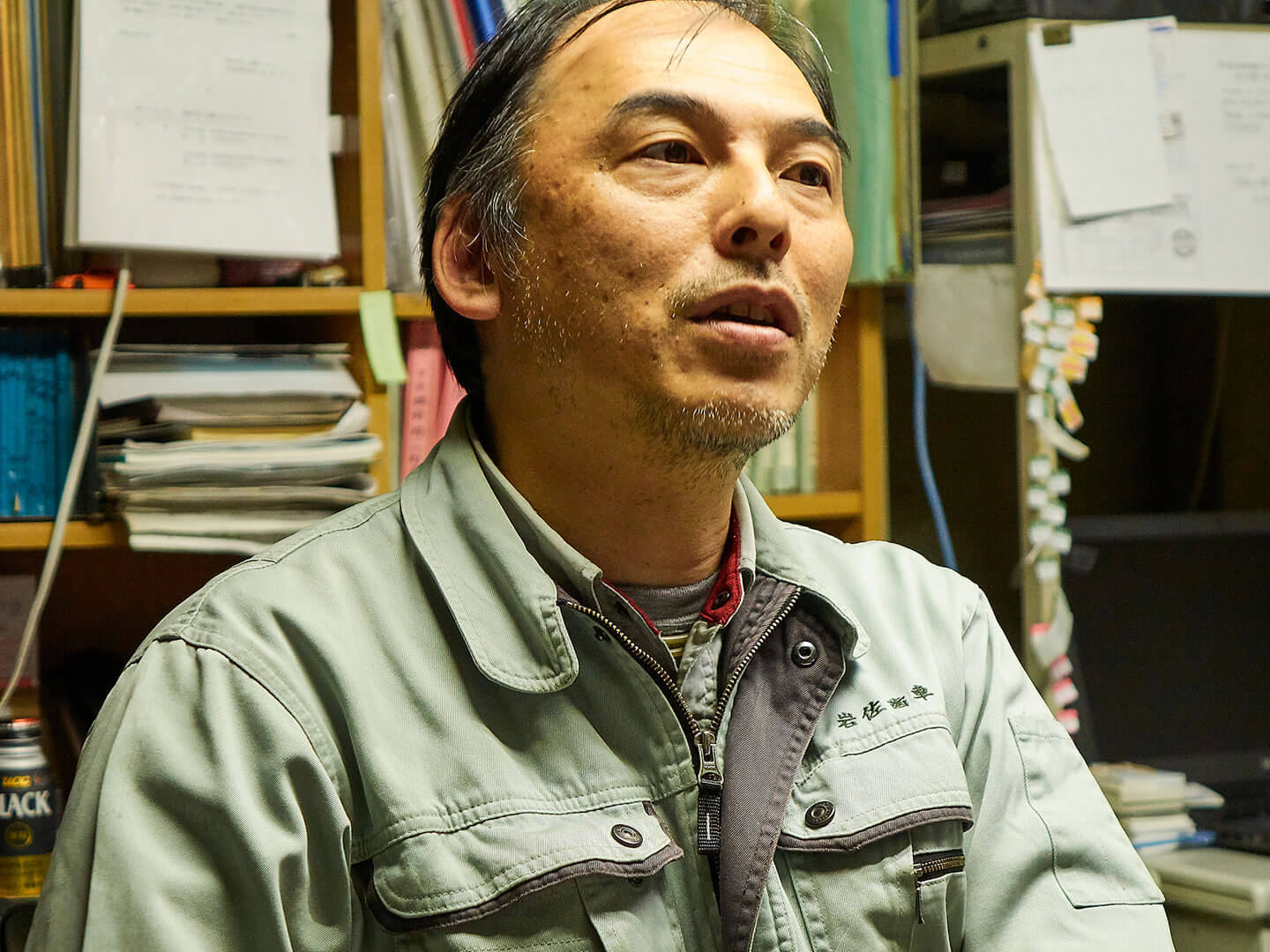
What are these gears used for? Can we get examples of both things that are familiar to us, and things we’re not familiar with?
For example, they are used as parts of automated doors and disk brakes of forklifts. For cars, it’s also used for the shafts of racing cars, though the types of these aren’t too varied. They’re also used for airplane wings and reclining seats.
For things that we may not be familiar with, the biggest and longest ones are used as parts for injection molding machines, which are used for manufacturing PET bottles. They’re not products used directly by consumers, but machines used in factories. Other than that, they’re used in rotary presses used to print news papers. We manufacture parts that are pretty large in size.
It seems that they’re used in places that are rather close to our daily lives. When we saw the footage of the gears, we simply thought it was beautiful, but knowing that they’re used behind the scenes in our daily lives it should affect how we view the footage.
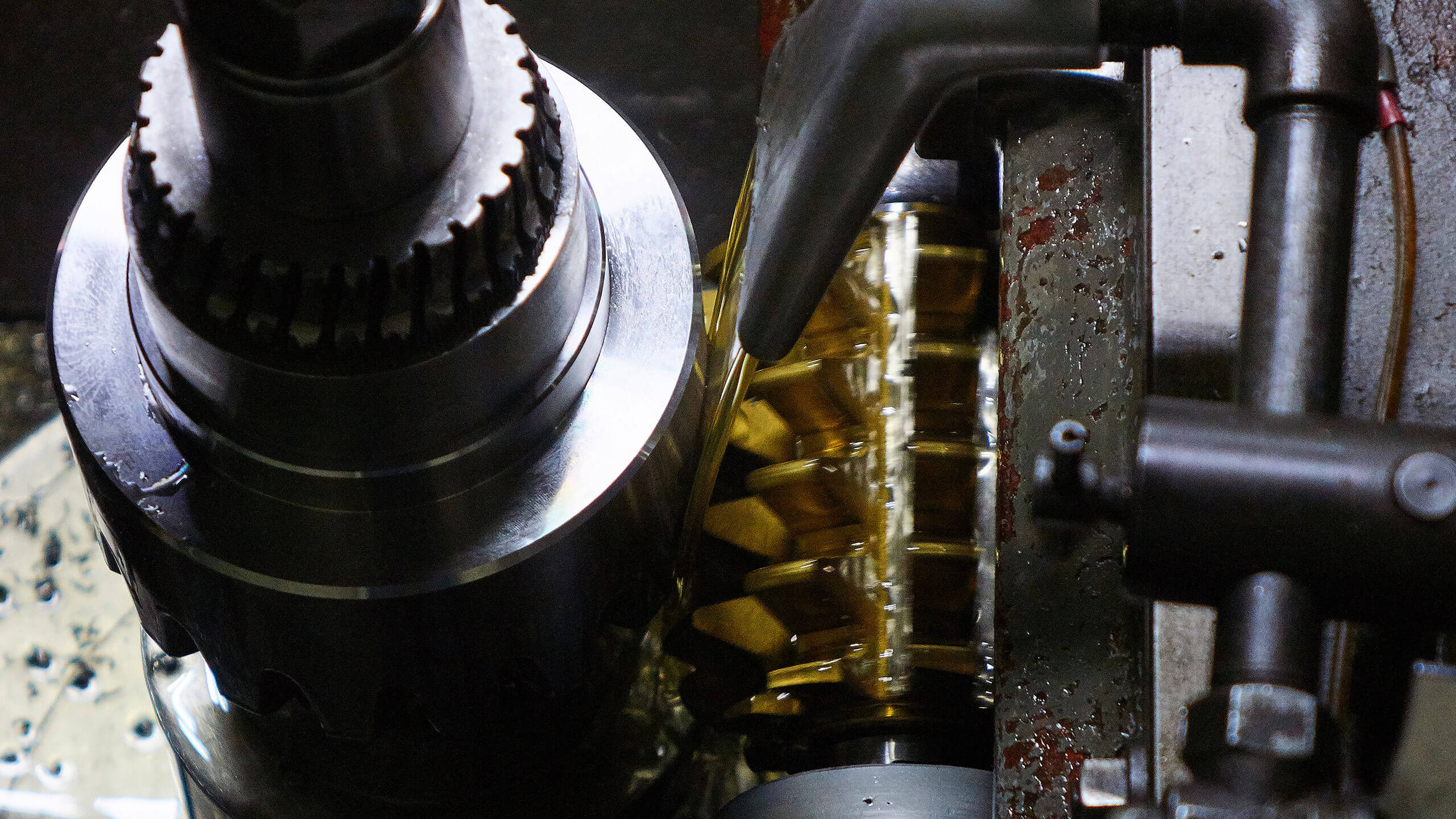
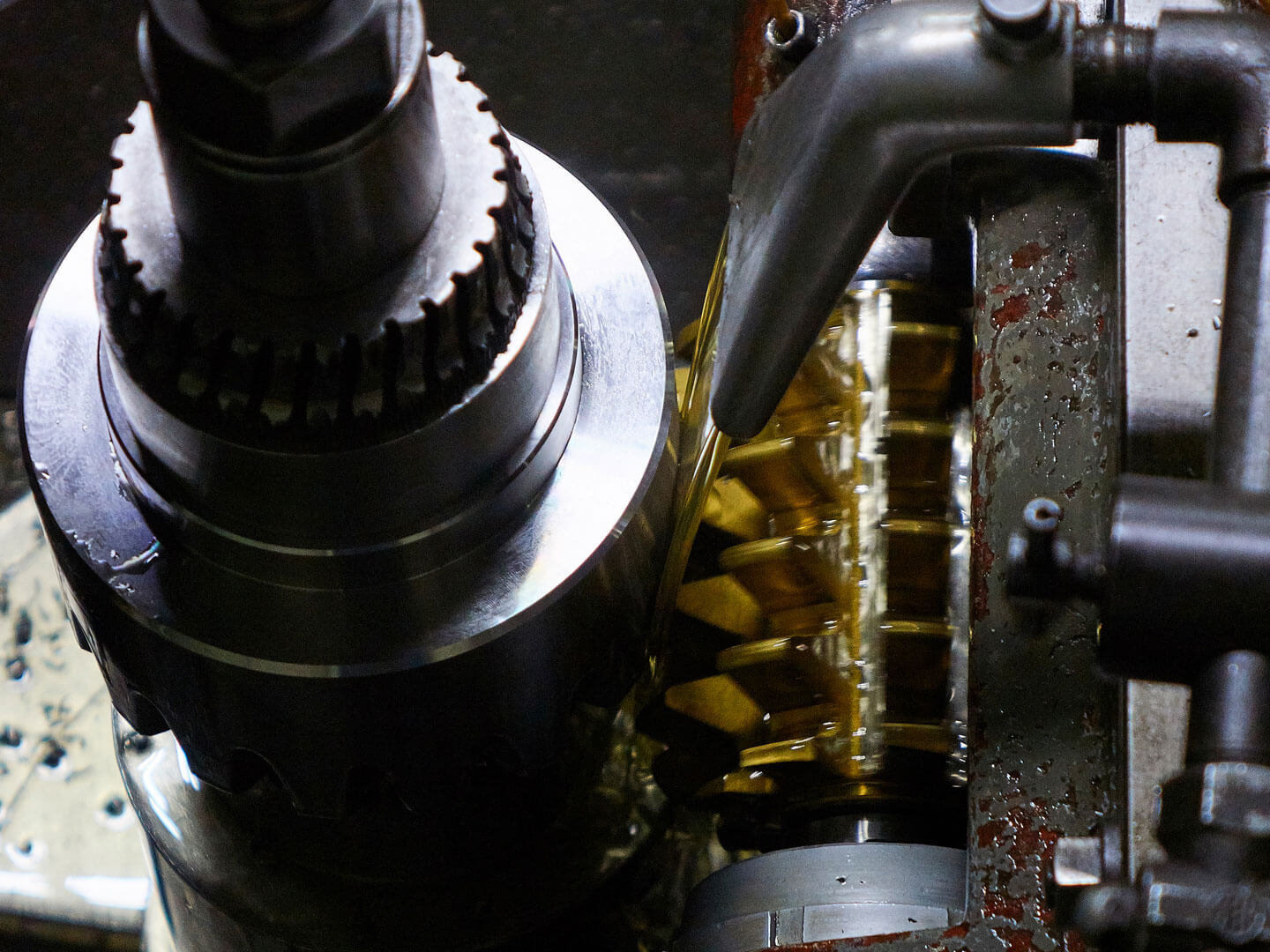
Mass production is possible overseas too. To survive in Japan, we need to make smaller lots of high quality parts that take time and patience to manufacture.
So since gears aren’t quite the final product but used as parts, does that mean the clients that you work with are mostly manufacturers themselves?
Yes, they are. We receive an order from manufacturers and create parts that fit their design and specifications. When the design for our client’s products changes, it also affects our operation and output. Rather than producing large lots of the same thing, we often output one or two custom-made parts. If we’re talking mass production, we can do that in China or from factories overseas. To survive as a factory in Japan, we need to produce high quality parts that take time and patience, which may be hard to do overseas.
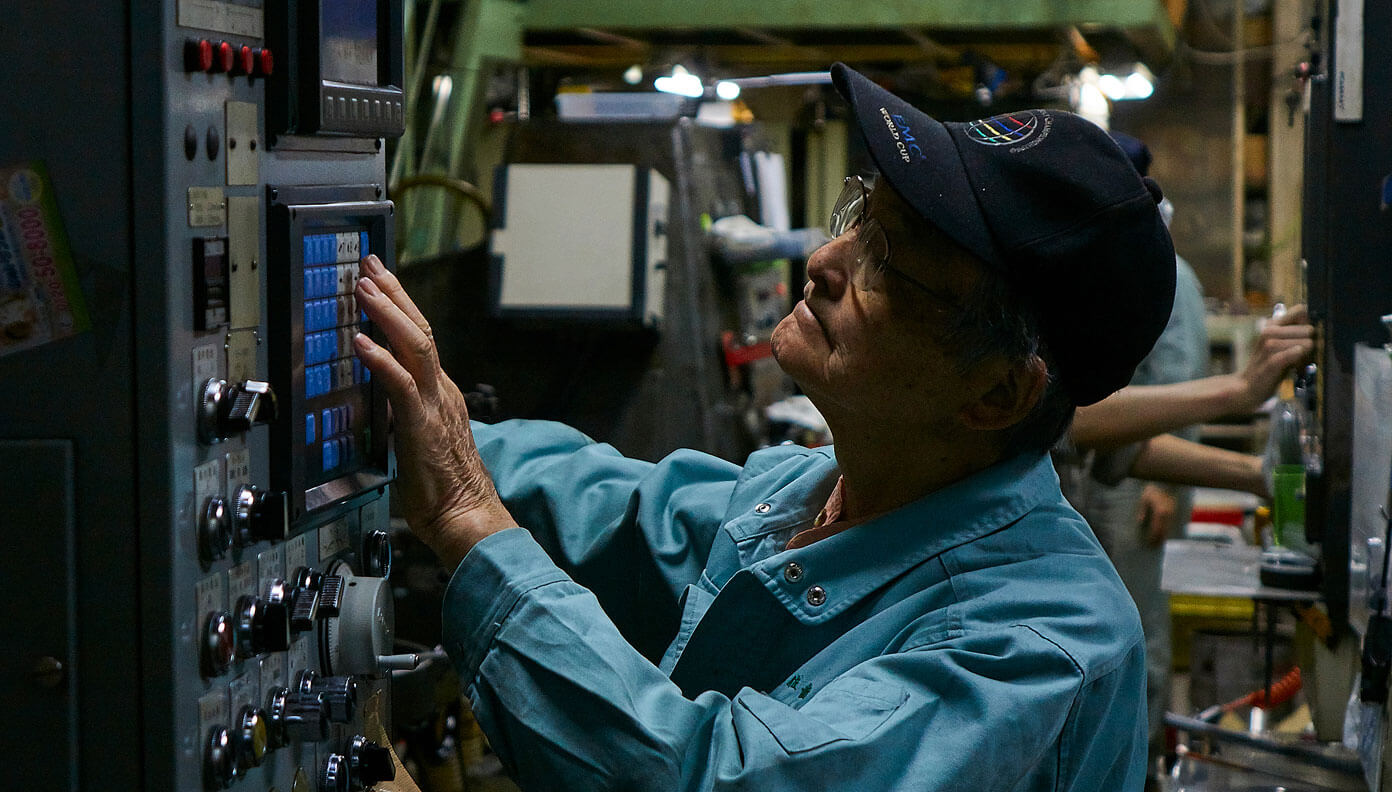
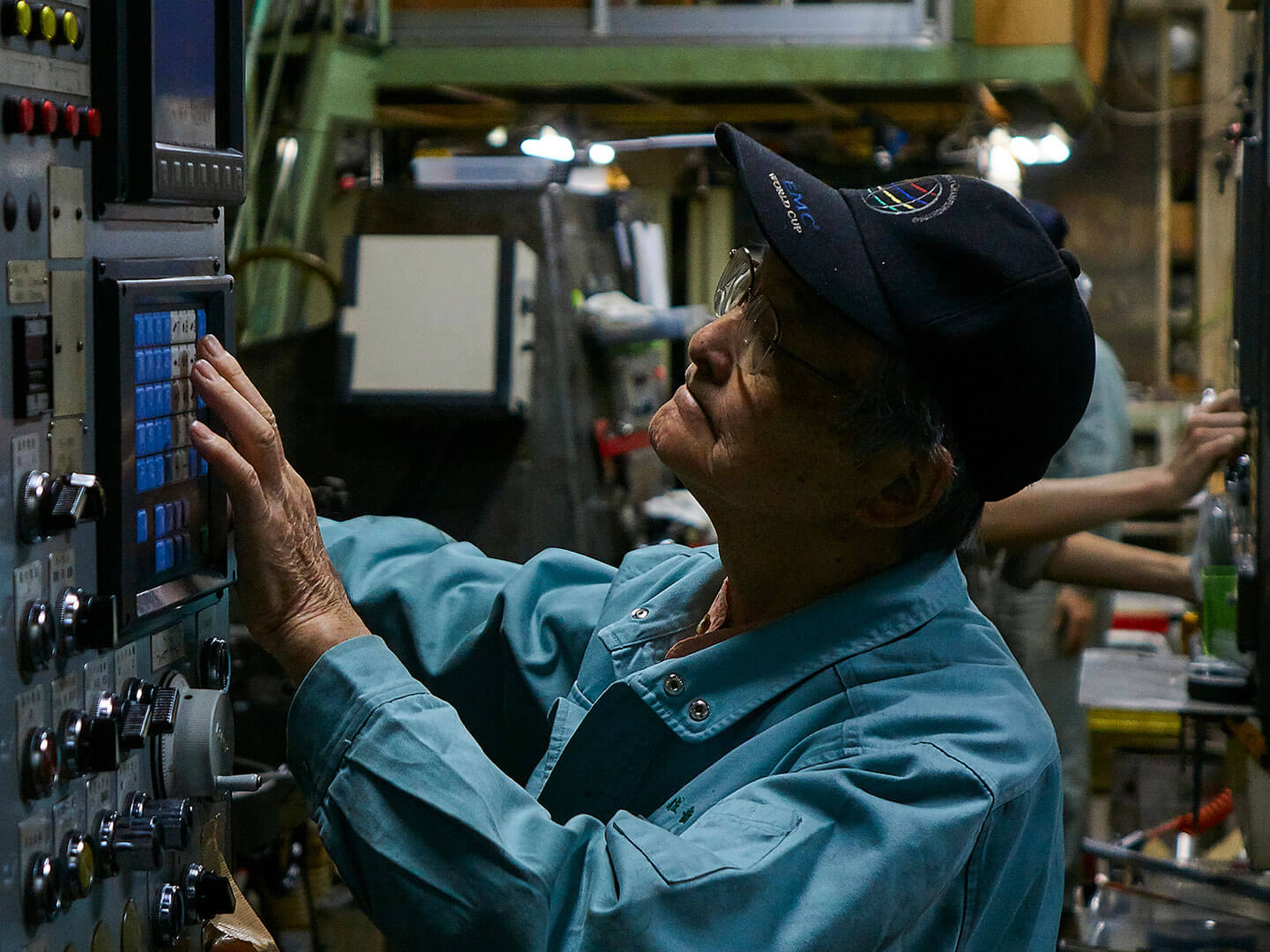
I see, what are some recent examples of things that were difficult to manufacture?
Of course, some orders are more difficult or easier than others, but even more importantly, we feel that certain requests take more time and attention. For example, some require complex steps of processing to complete. When there are numerous steps involved, we need to pay attention to the order of these steps or the finished parts may not be at all what we imagined them to be. This is especially true when applying heat treatment as this hardens and simultaneously morphs the material. The final product is greatly affected depending on when we apply the heat treatment step.
When you receive the designs from your clients, do they give instructions regarding the manufacturing process?
No, they do not. They simply include size specifications for the finished parts. It is our job to figure out how these are achieved. For these reasons, there are times when the parts don’t come out as intended despite much trial and error. But I’ve been doing this job for 30 years with my father as the company president. The factory has been around for more than 40 years. So since I was a child, I’ve been watching my father tackle these designs, exposing me to these challenges. Now, when I’m given a design I can see the potential processes necessary to manufacture what is needed.
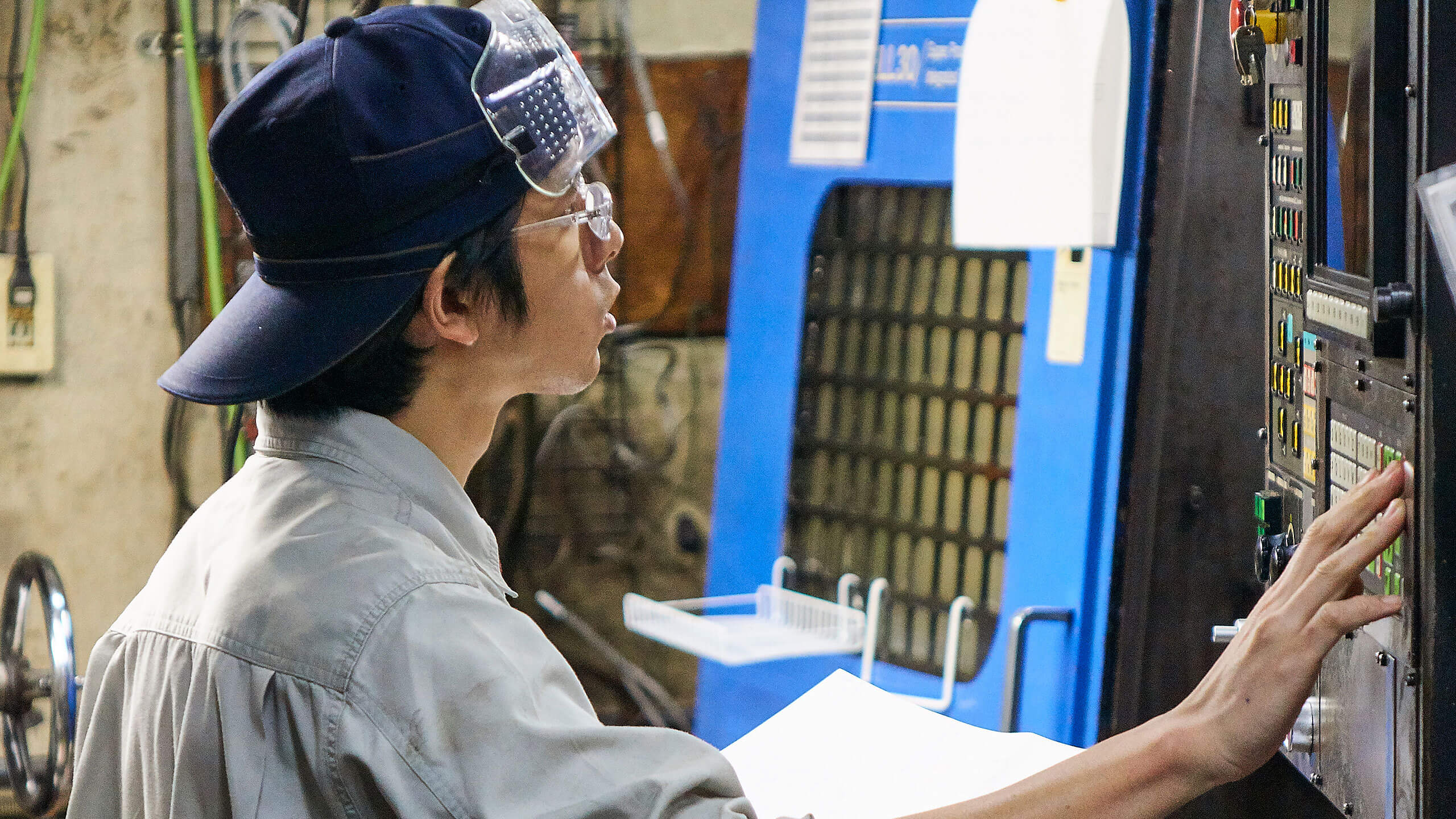
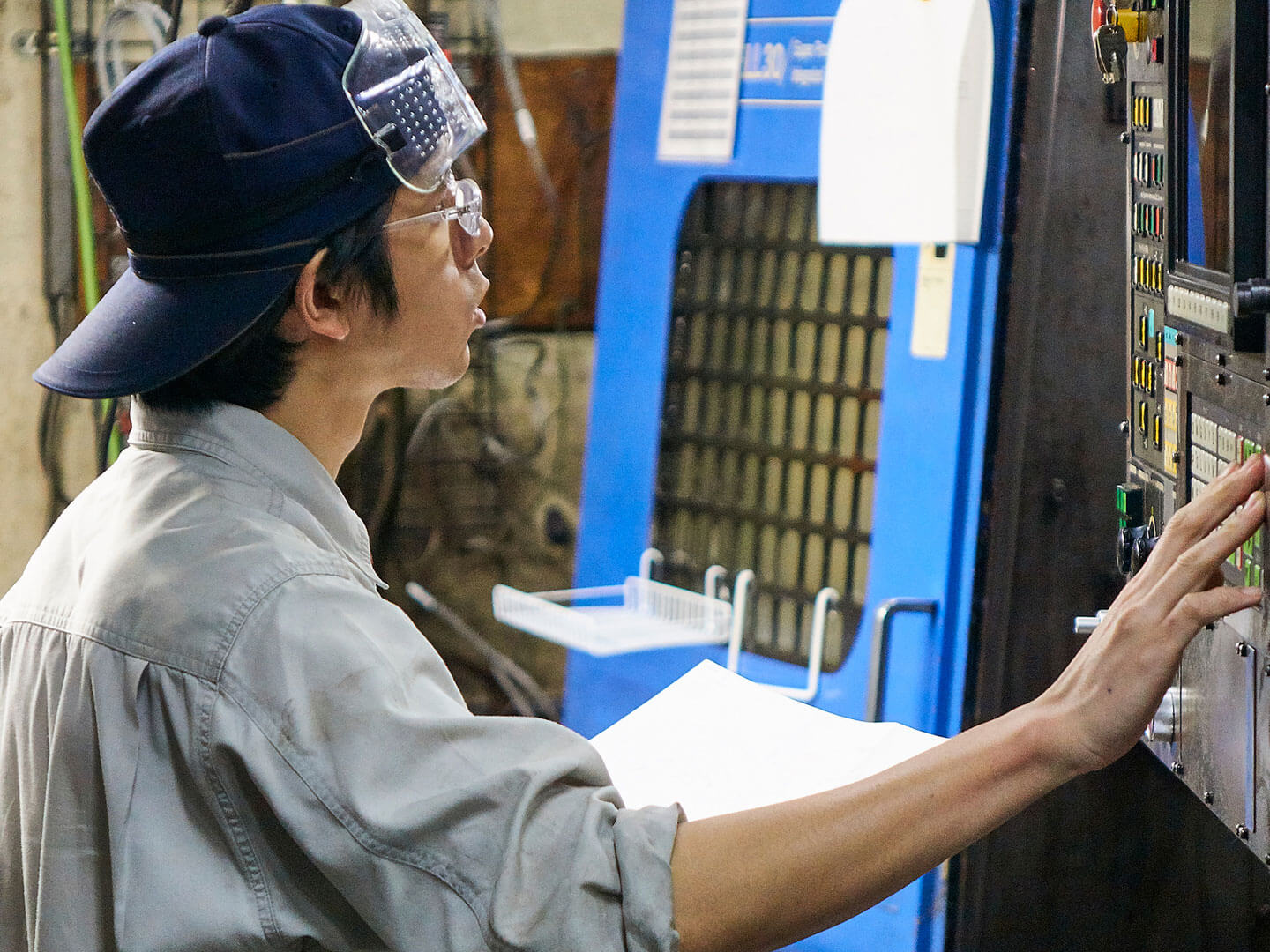
At the end of the day, the optimal parts need to be finished, regardless of who makes them or how much time and patience it requires.
So is that a type of sensory or experience based skill? Do you think we need diligent training to operate machines too?
It all comes down to experience. So even when you’re working with the same machine, the finished product will vary according to the person making it. The size of cogs of the gears are regulated to the specifications of JIS (Japanese Industrial Standard), which means that we can calculate the finished product all based on numbers. If you understand this, and tweak the settings accordingly, the machines will handle the rest. But even still, when these are made by a skillful technician and not so skillful one, the difference is apparent. It’s in the way they operate the machines, the way they manage their tools. All of those separate things accumulate and make a difference in the end.
There are also young people at your factory. Are they in training?
That’s right. We have an ad on the Ota Ward website. We ask people to visit the factory, and if they’re interested, have them join the team. If they want to work independently in the end, that is fine too. We want people who are curious about manufacturing, because otherwise they won’t last.
Do you also ask conduct entrance exams common in Japan for new graduate hires?
We do ask for their education, work history, and other experiences. If they’ve attended a manufacturing-related school, we might ask them to bring in the works they’ve made in the past. The young ones at our factory seem to like bikes and bicycles, and we sometimes see them customizing them using the materials and tools available at the factory. I think it’s all about the love for creating something with your hands.
This project converts sound from factories to inspire music. When you’re experienced, can you also decipher differences through sound?
We can when we’re cutting through materials. We can’t say this as an overarching rule, as sounds do change depending on the material, but there is a sound it makes when the materials are being smoothly cut. When the cutting is smooth, we don’t really notice the sound, but when they’re not, we hear this sound like something just got stuck. This happens when the tools are worn down and just get stuck on the material.
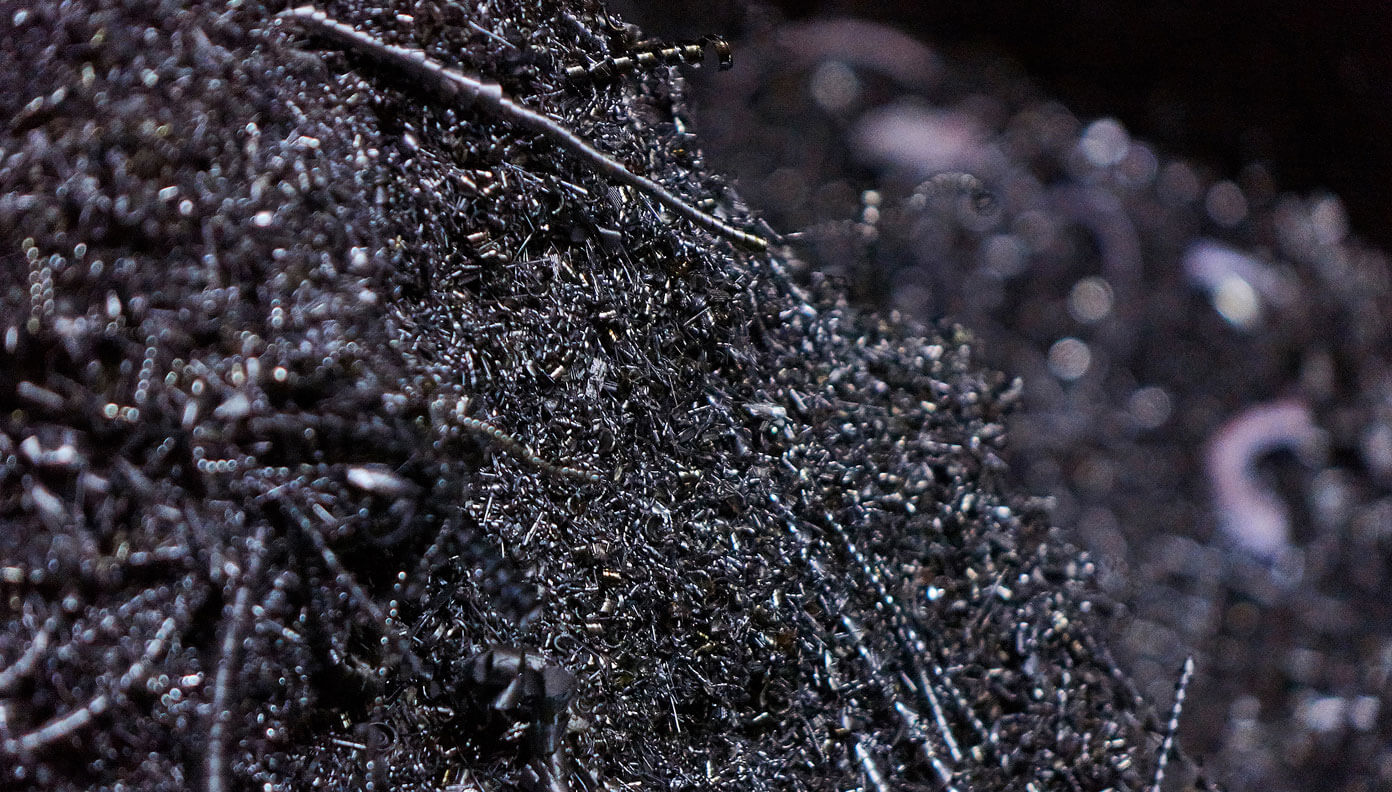
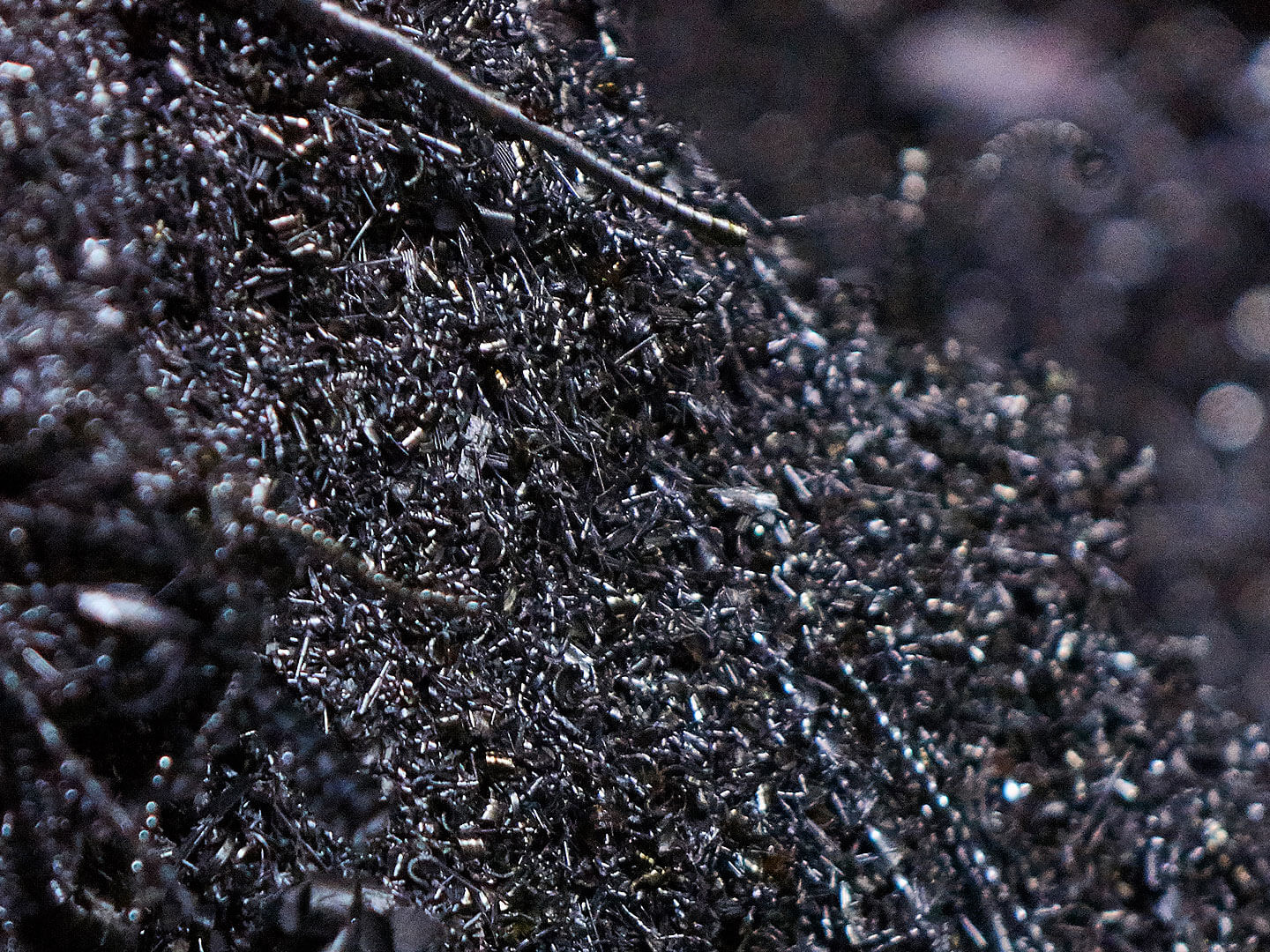
So that must mean that even when you use machines to manufacture the gears, you still need the craftsperson’s skills and his or her sensory awareness.
That is true, but at the end of the day, the most important thing is that the optimal parts are made, regardless of who makes them or how much time and patience it requires. It is a given that we prepare a great final product. The important thing for us, is to use our head and hands as people when preparing and applying the manufacturing steps. When the product isn’t made right, often times this means that we haven’t paid enough attention or spent enough time in the manufacturing processes.
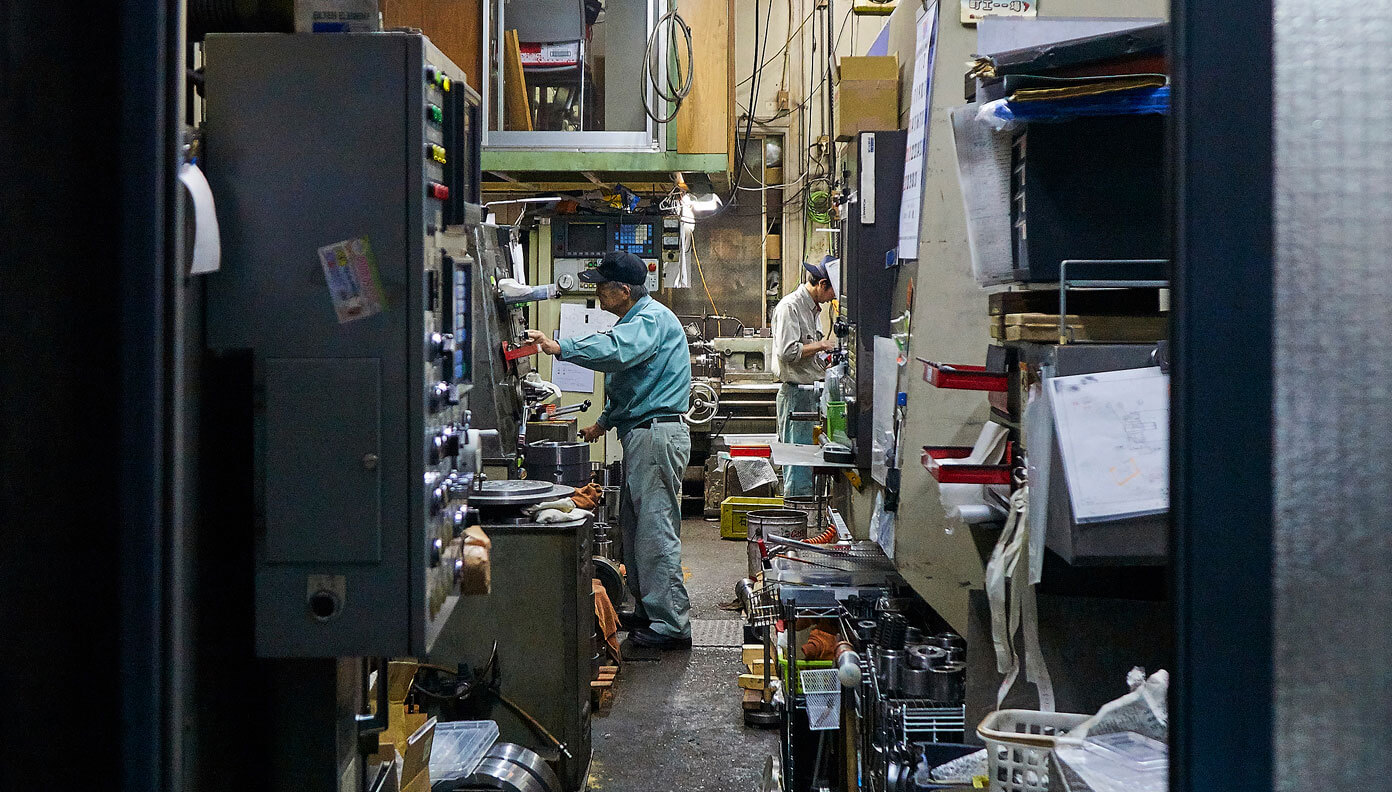
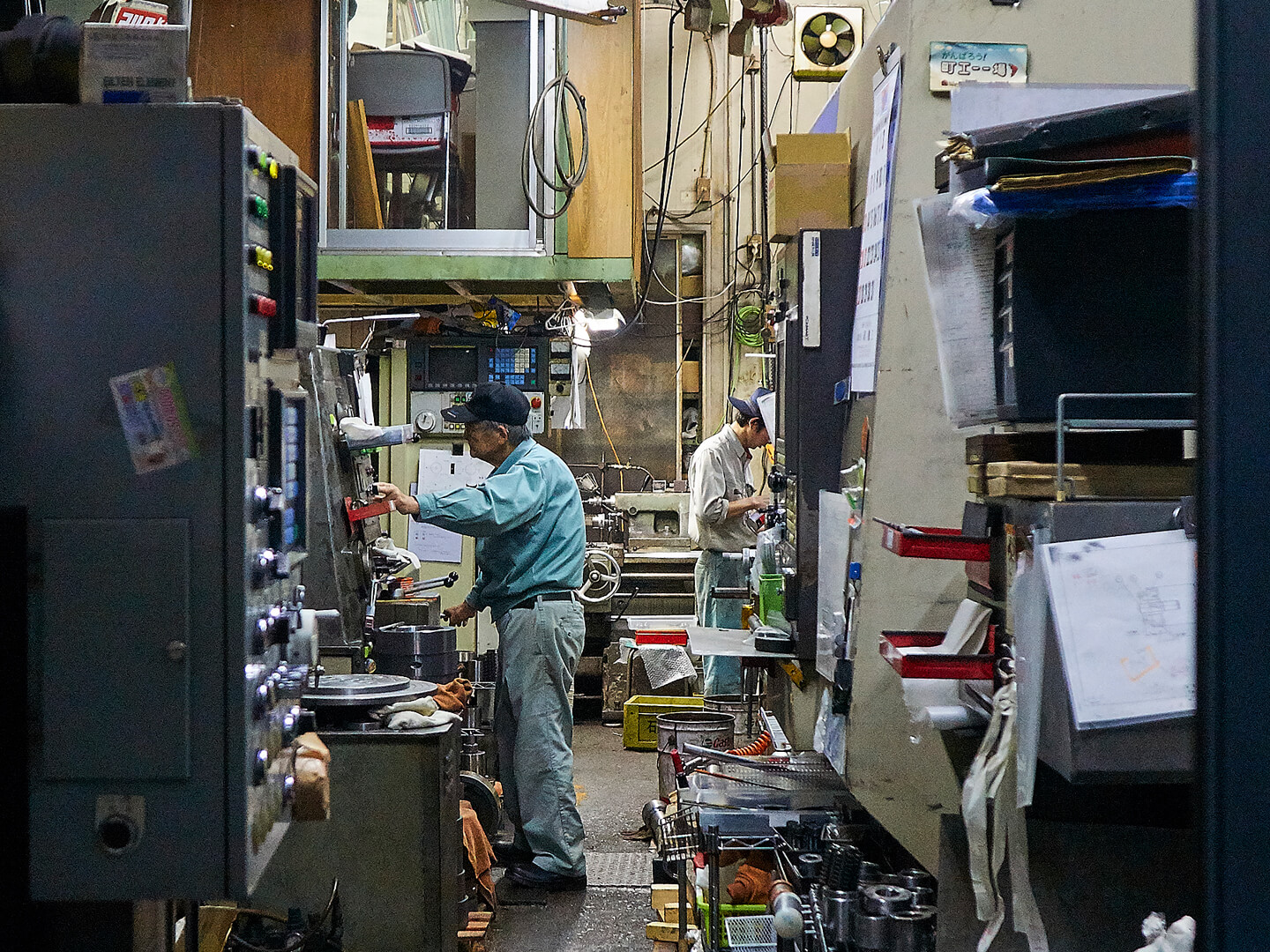
Are there also times when your clients come to you because you’re the only factory that can handle their requests?
That does happen. When we know the reason why they’re struggling, we sometimes give advice so they can handle it at the original factory, since the final price will increase if we join the production process in the middle of it.
That’s very fair of you (laughs).
Well that’s also because gear factories are well connected with other people and factories in the industry. There are many types of gears requiring different types of machines, so small factories cannot stock all of these machines as a single factory. This creates a diverse range of specialties shared across factories, which means we can recommend and send suitable jobs to support each other. We all work within a friendly network.
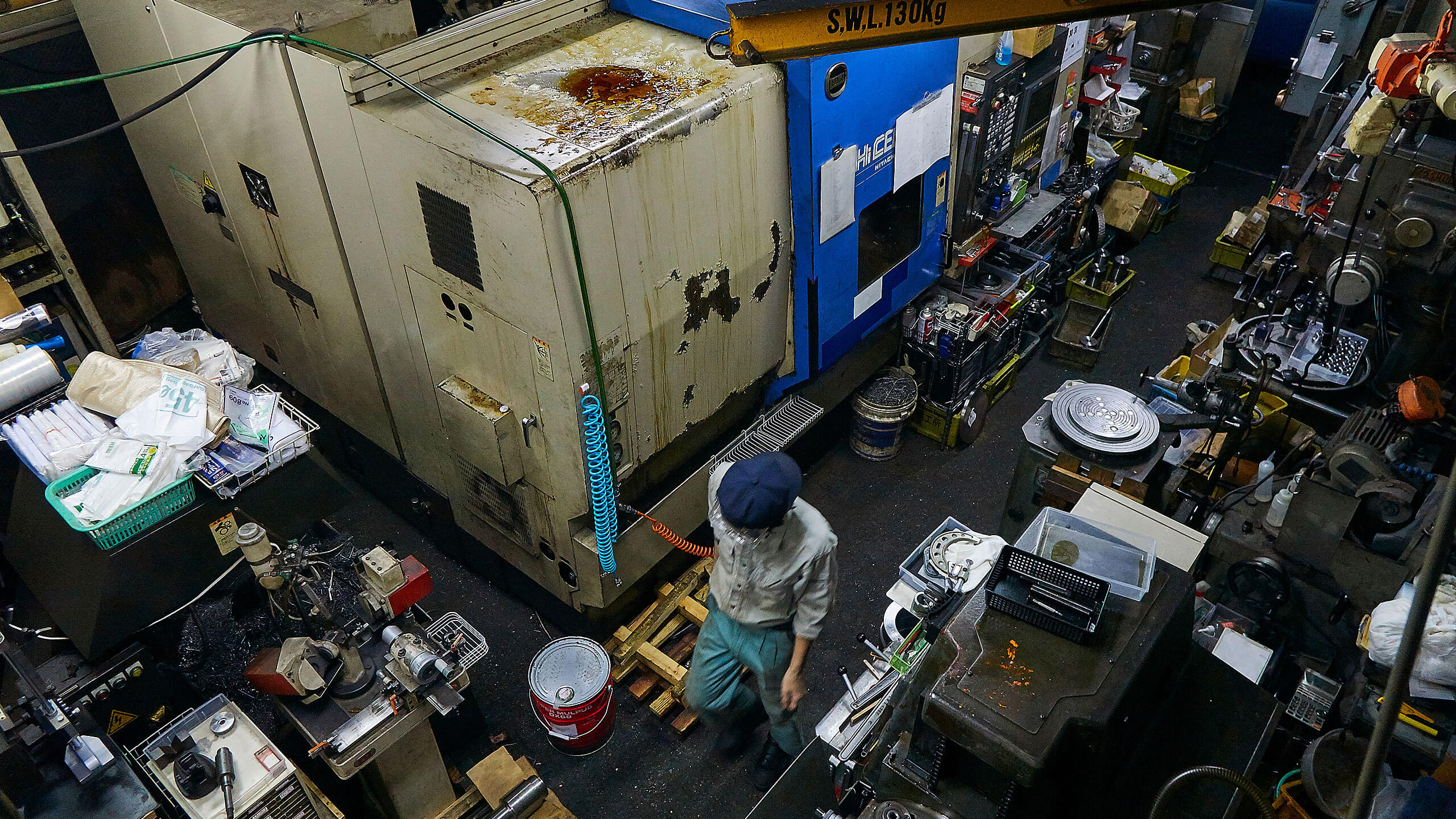
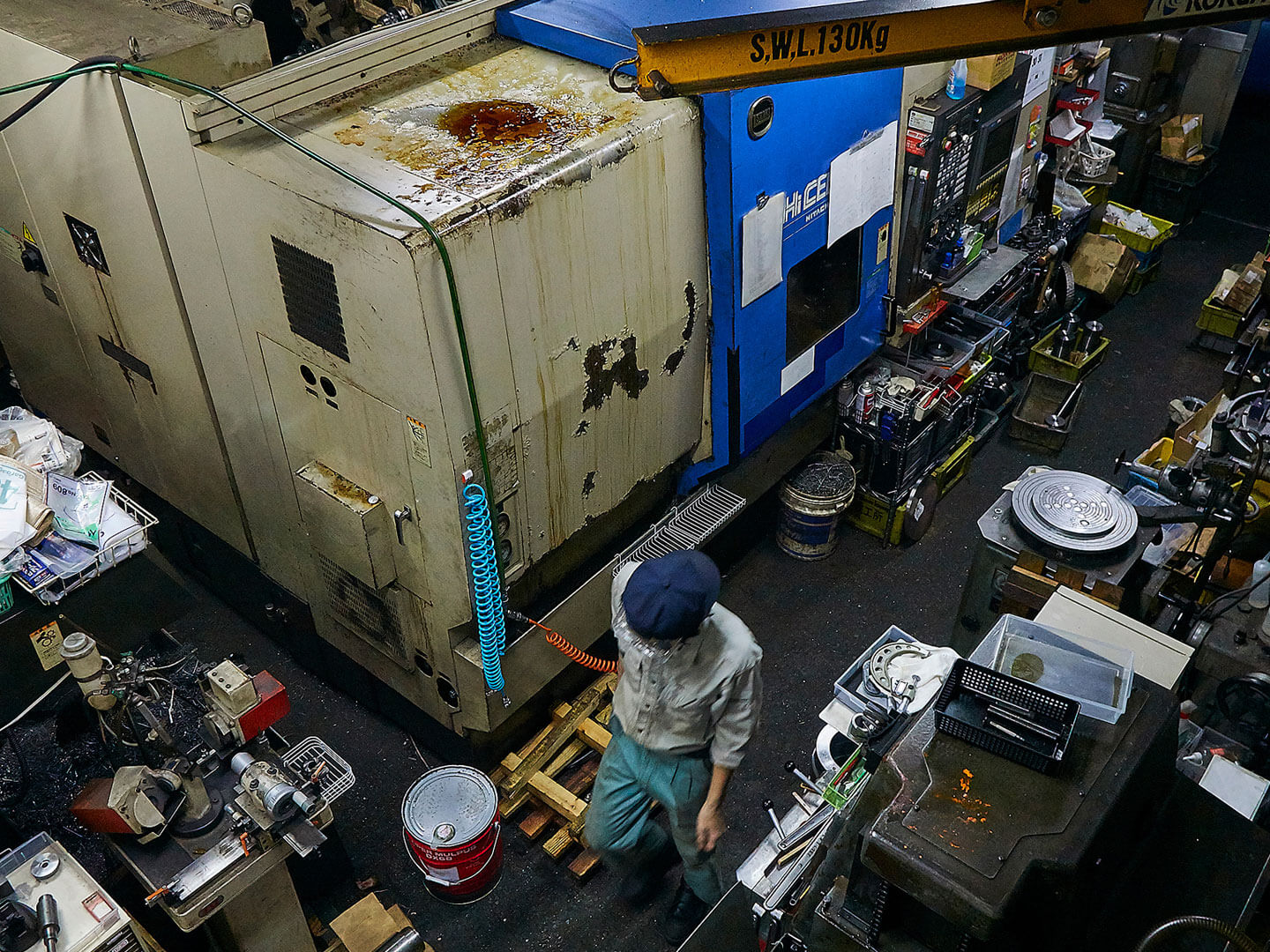
FACTORY
iwasa haguruma
Iwasahaguruma CO., LTD.
Iwasa is a three-man operation founded in Ota, Tokyo, in 1974. Their specialty is cutting spur gears, helical gears, spiral bevel gears, and cup rings for internal gears. They handle the entire process, from materials to heat treatment, polishing, sharpening, and screw grinding, and even simultaneous lathing and milling. They even have the technology to measure and restore damaged gears. With their dependable technology and uncompromising quality, they have won the local titles of “Tokyo Meister” and “Artisan of Ota.”
4-6-4 Haneda, Ota-ku, Tokyo 1440043 Japan
